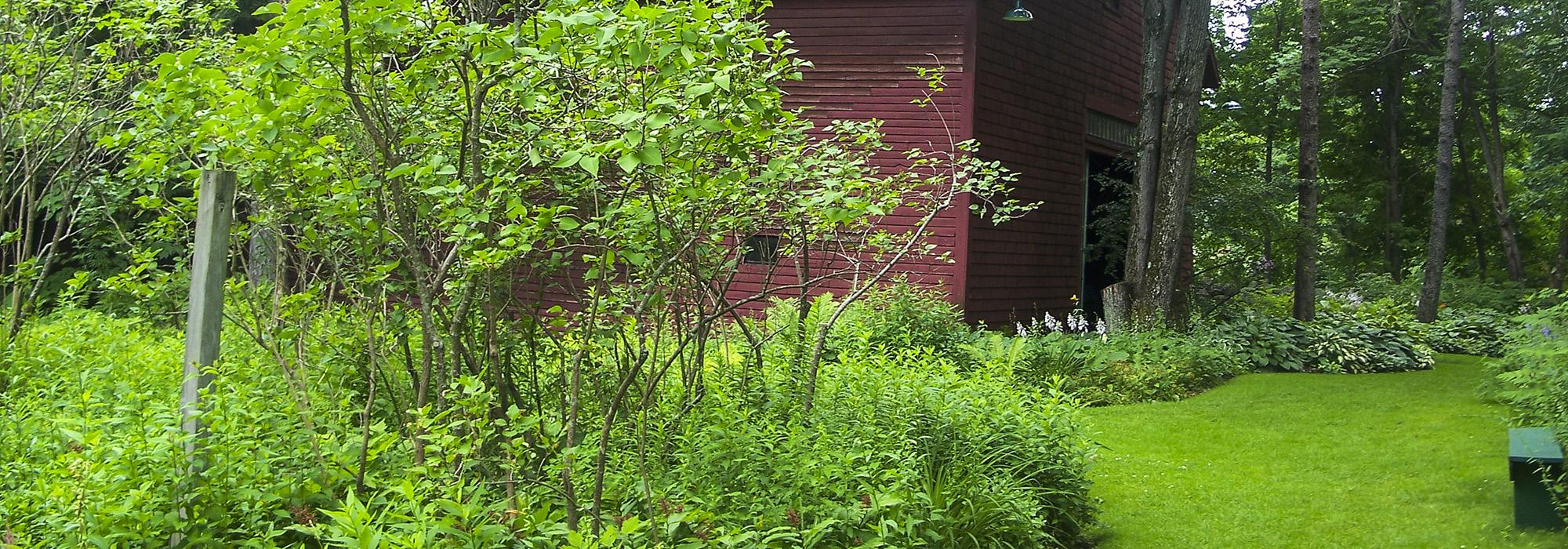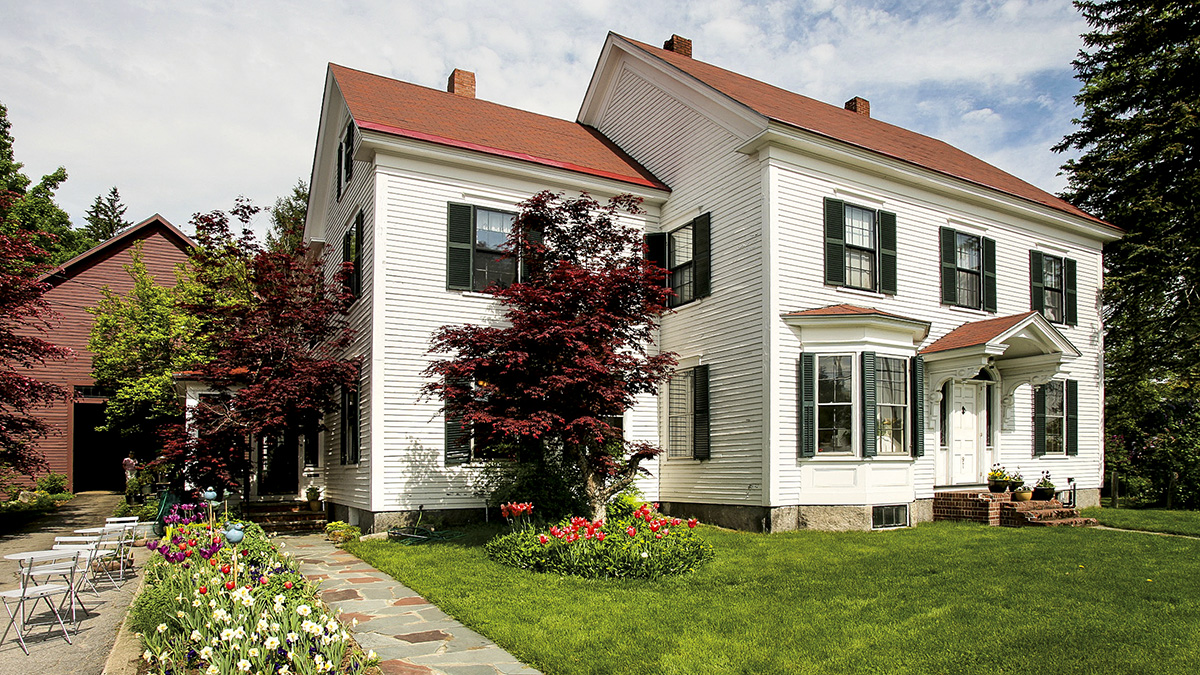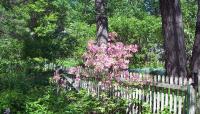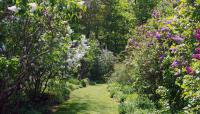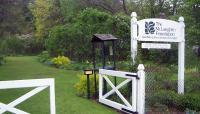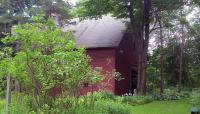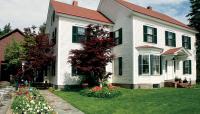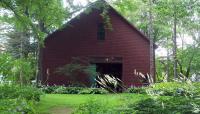After Bernard McLaughlin and Rena Tribou married in 1936, they took ownership of the Tribou family homestead, a 28-acre dairy farm with a barn, hay field, a cow lane leading to pastures, and an orchard with apple and pear trees. Over the subsequent sixty years McLaughlin created two acres of gardens in close proximity to the farmhouse, embellished with transplanted trees and flowering plants found along regional roads and unusual shrubs and perennials secured from local area nurseries. Open to the public, McLaughlin’s garden of hostas, daylilies, astilbes, iris, phlox, sedum, cimicifuga, and over 200 lilacs were planted in wide planting beds separated by lawn paths and areas of open lawn. He also cultivated wildflowers and ferns in the former cow lane, lined with massive stone walls. The garden was enclosed with a simple whitewashed picket fence.
McLaughlin continued to maintain the garden and expanded his collections until well into his 90s. After he died in 1995, the non-profit McLaughlin Foundation Garden & Horticultural Center was formed to purchase the property, one of the last private residences in South Paris located on a state highway lined with commercial businesses. The gardens and barn and part of the farmhouse, both built in the 1840s, remain open to the public. The property was listed in the National Register of Historic Places in 2000.



